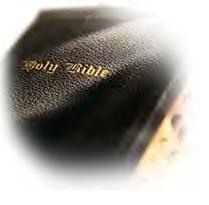After Peter confessed that Jesus is the Christ, the Son of God, Jesus responded, “Blessed are you, Simon Bar-Jonah, for flesh and blood has not revealed this to you, but My Father who is in heaven. And I also say to you that you are Peter, and on this rock, I will build My church, and the gates of Hades shall not prevail against it.”
The Greek word translated “church” is ekklesia, which means “the called out.” Sometimes the word is translated “assembly.” Ekklesia, or the church, never refers to a building but rather to people.
Paul teaches that the church is the body of Christ (Colossians 1:24 and Ephesians 1:22-23). Ephesians 1:22-23 says, “And He put all things under His feet, and gave Him to be head over all things to the church, which is His body, the fullness of Him who fills all in all.” The church is Jesus’ body, and Jesus is the head of the church, having all authority. The church is subject to Christ (Ephesians 5:24). And according to Paul in Romans 12:4-5 and 1 Corinthians 12:12-14, there is one body (church), but many members (individual Christians). “For as the body is one and has many members, but all the members of that one body, being many, are one body, so also is Christ” (1 Corinthians 12:12).
In summary, the Scriptures teach that
1. the church is the body of Christ,
2. the church consists of many individual members,
3. there is one body (church),
4. Jesus is the head of the church.
This means that
1. the church is not a building,
2. the church is not made up on many churches,
3. there is not more than one church,
4. no man is the head of the church.
In addition, Jesus purchased the church with His own blood (Acts 20:28), which is a reference to His death on the cross. Jesus’ death on the cross was necessary in order for mankind to have forgiveness of sins and a relationship with God. Sin separates us from God (Isaiah 59:2), and our own goodness or meritorious works cannot earn us forgiveness (Ephesians 2:8-9). No matter how “good” we may be, we will stumble and sin from time to time. Only the sinless and perfect Jesus, come to Earth as a man, could sacrifice His life so that we might live. The Scriptures show a relationship between Jesus’ death and the church.
Romans 6:3-5 tells us,
“Or do you not know that as many of us as were baptized into Christ Jesus were baptized into His death? Therefore we were buried with Him through baptism into death, that just as Christ was raised from the dead by the glory of the Father, even so we also should walk in newness of life. For if we have been united together in the likeness of His death, certainly we also shall be in the likeness of His resurrection.”
How do we enter into the church, the body of Christ?
According to 1 Corinthians 12:13, baptism puts us in the body of Christ. Therefore, when we are baptized, we are baptized into the body of Christ – the church. This relationship is also demonstrated in Acts 2. After Peter preached the first gospel sermon, the Jews who were “cut to the heart” asked Peter what they should do. Peter instructed them to “Repent, and let every one of you be baptized in the name of Jesus Christ for the remission of your sins; and you shall receive the gift of the Holy Spirit” (vs. 38). In order for man to be saved, he must have forgiveness of sins. God tells us that baptism is for the remission of sins. Some teach that “for” means “because of;” however, the original Greek word “eis” is never translated “because of” and is the same word used in Matthew 26:28 in which Jesus says, “For this is My blood of the new covenant, which is shed for many for the remission of sins.” We understand that Jesus’ blood was shed in order for the forgiveness of sins to take place, not because it already had. Similarly, baptism is in order to receive forgiveness of sins, not because we are already forgiven. Baptism is the point at which we receive the forgiveness of sins or salvation.
Later in Acts 2, verse 47, we are told that God added to the church daily those who were being saved. We do not “join” the church – God adds us. We are not saved because we were added to the church – we are added to the church because we are saved. Therefore, the church consists of individual saved members whom the Lord added through baptism.
Monday, January 8, 2007
What is the Church?
Subscribe to:
Post Comments (Atom)


No comments:
Post a Comment